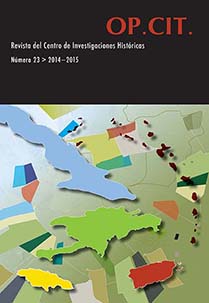Abstract
In the year 1514, Spanish conquistadores exterminated the indigenous population in Vieques. The island was transformed into an uninhabited imperial possession colonized only in the 19th Century and taken over by the United States in 1898. Or so we are told, history is told. Viequenses, however, have challenged the dominant narrative by infusing life to the feared Caribs. At the end of the 20th century, for example, opponents to the U.S. military presence pushed forth an alternate temporal sensibility in which indigeneity is a central part of Viequense identity. Different performances of Caribness foregrounded an organic relationship between island and community and an indomitable character bequeathed by those thought to have sacrificed everything before submitting. The articulation of a Viequense indigenous identity is then a contestatory stance that complicates history, questions its methods and evidences its effects. It is also part of a struggle for survival in the (post)colonial Caribbean.

